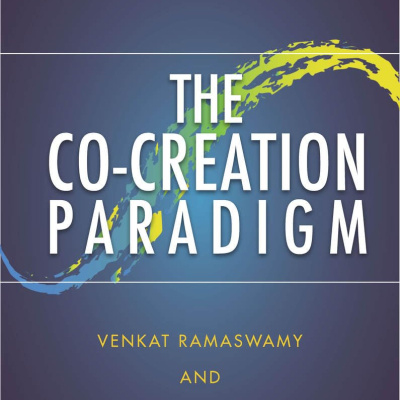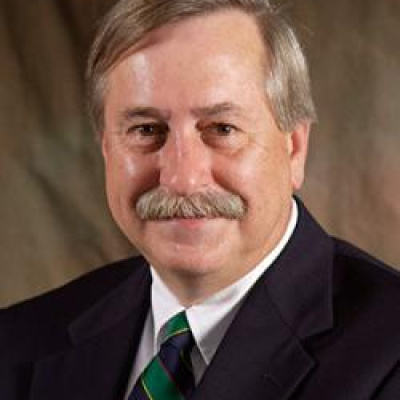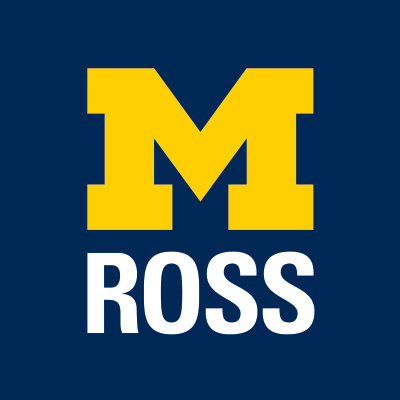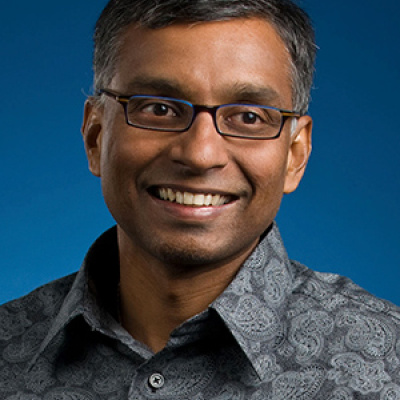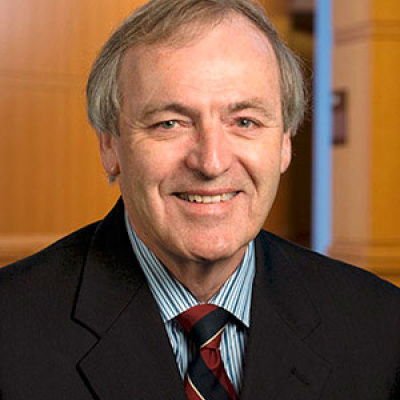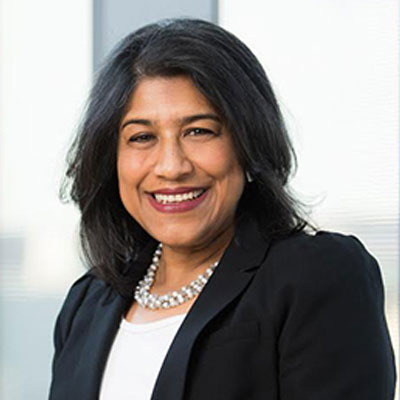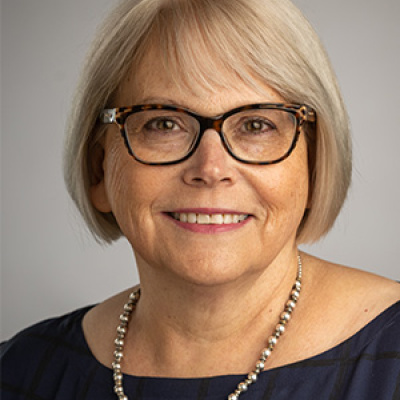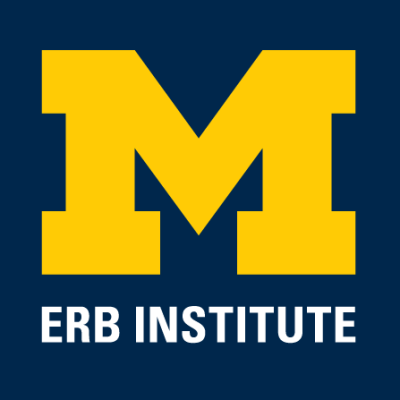Explore the faculty research, thought leadership, and groundbreaking philosophies that established Michigan Ross as one of the world’s top business schools.
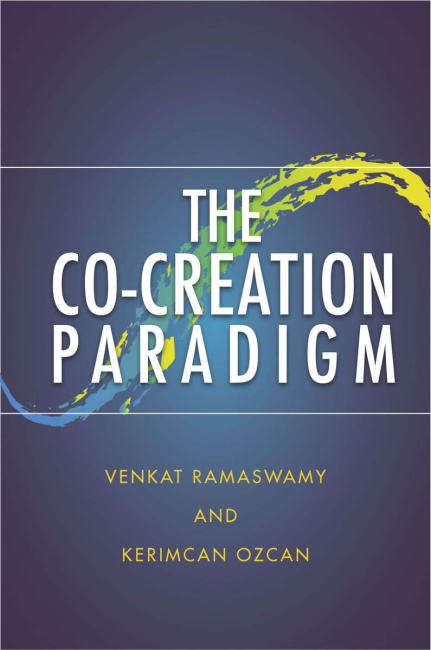
"Co-creation as a revolutionary paradigm was introduced by Professors C. K. Prahalad and Venkat Ramaswamy in a series of articles published between 2000 and 2004 and an award-winning book, The Future of Competition. Their work provided a new frame of reference for jointly creating value through networked environments of increasingly digitalized experiences, going beyond goods and services, and called for a process of co-creation -- the practice of developing offerings, experiences, and unique value through ongoing interactions with customers, employees, managers, financiers, suppliers, partners, and other stakeholders. Through their work, they envisioned an individual and experience-centric view of interactive value creation and innovation.
Starting in 2005, the explosion of digital and social media, the convergence of technologies and industries, embedded intelligence, and information technology-enabled services enabled enterprises to build platforms for large-scale, ongoing interactions among the firm, its customers, and its extended network. Ramaswamy's work argued that success lies in connecting with people's experiences to generate insights and change the nature and quality of interactions. He also called for co-creation from the inside out of enterprises and their networks, as much as co-creation from the outside in, and for leaders to co-create transformative pathways.
In 2014, Ramaswamy published "The Co-Creation Paradigm", which combined the core ideas of co-creation with a call to see, think, and act differently in an interconnected world of possibilities and complex challenges to co-create a better future as individuals."
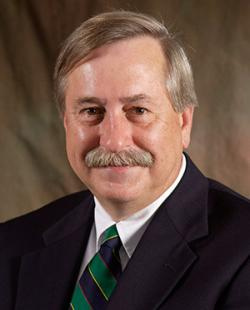
Michigan Business School Professor and Erb Institute Faculty Director,Tom Gladwin, pioneered the field of business sustainability with his concept of a "science of sustainable enterprise." It was one of the first scholarly frameworks to bring together the social, environmental, economic, and organizational aspects of competitive companies that likewise are managed to explicitly create value for society. With groundbreaking publications like "Shifting Paradigms for Sustainable Development: Implications for Management Theory and Research" and "Beyond Eco-Efficiency: Towards Socially Sustainable Business" in the 1990s, Gladwin dramatically expanded the scope of traditional management education and business leadership. Throughout his career, and his long-time partnership with the Prince of Wales's Business & the Environment Programme, Gladwin influenced hundreds of CEOs and other top corporate leaders to think deeply about, and take action on, the threat and the opportunity of sustainable business.

The Preparation Initiative was created by Professor Emeritus Frank Yates in 2005. Yates was a champion of diversity in higher education and believed all students should have access to Michigan Ross, regardless of their preparation. The Preparation Initiative is a thriving community designed to foster the excellence and success of undergraduate business students from economically distressed backgrounds or from racial or ethnic groups historically underrepresented in business leadership. Since its inception, the Preparation Initiative has supported hundreds of students in their pursuit of a business education and now also offers mentoring opportunities for alums of the program.

The root of the Great Financial Crisis of 2008-2009 lay in poor-quality residential mortgage loans made by financial institutions. A set of academic research papers established that lenders made poorer quality loans when they anticipated selling the loans to investors rather than continuing to own the loans until they matured. When loans were sold, a complex securitization process led to a large distance between the originator of a mortgage and the final investor in the loans. Amit Seru, PhD '07, and co-authors established in an important series of papers that focused on 1) keeping most characteristics of loans the same, loans that were only marginally easier to securitize had significantly higher default rates than those that were marginally more difficult to securitize, 2) (in work with Professor Uday Rajan) securitized loans, the interest rate (which represents the compensation to investors for bearing the risk of default by the borrower) became an increasingly worse predictor of default in the build-up to the GFC, and 3) information passed on to investors by mortgage securitizers was limited and sometimes outright fraudulent. In another crucial strand of work, Professor Amiyatosh Purnanandam demonstrated that 1) loans held by banks on their own balance sheets had lower default rates than otherwise identical loans sold by banks to investors and 2) (in work with Taylor Begley, PhD '14, and Kuncheng Zheng, PhD '15) even with securitized loans, default rates were lower when the riskiest tranche was held by the lender rather than sold to investors. Collectively, the work done by Ross faculty and PhD alums showed that the ability to securitize mortgage loans undermined the incentives of lenders to the point that low-quality mortgage loans were made, essentially providing the dry timber that fueled the GFC.
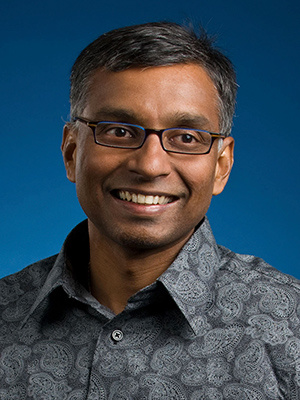
No matter the discipline, business research can have a huge impact on diversity, equity, and inclusion. In 2013, Venky Nagar, KPMG Professor of Accounting, along with former Michigan Ross professor Feng Li, published accounting research on U.S. firms initiating same-sex domestic partnership benefit policies.
Li and Nagar’s paper “Diversity and Performance,” published in Management Science, tests if corporate policy supporting LGBTQ+ rights frees all employees to bring their authentic selves to work, thus improving org culture and performance. The paper finds that the nearly 300 firms that adopted these policies between 1990 and 2006 saw significant improvement in operating performance relative to an approximate 10% average stock price increase. If an investor had accordingly timed their purchases of these firms, they would have outperformed ninety-five percent of all U.S. professional mutual funds.
The paper’s reasoning was core to the 2015 Amicus Brief filed in support of legalizing same-sex marriage by the law firm Morgan Lewis on behalf of 379 large and small corporate employers ranging from Apple to Zingerman’s in the landmark Supreme Court case Obergefell v. Hodges.
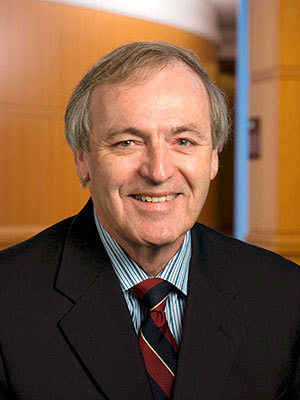
Professor David Brophy brought the study of small businesses and private financial markets (now known as alternative, in contrast to publicly traded markets) to Michigan Ross and the state of Michigan before it was recognized as a legitimate area of study at top research universities. This process started in the mid-to-late seventies, and Brophy relentlessly created awareness in Michigan and educated students interested in this space. For over fifty decades, until his recent retirement, Brophy designed and taught all Michigan Ross venture capital and private equity courses.
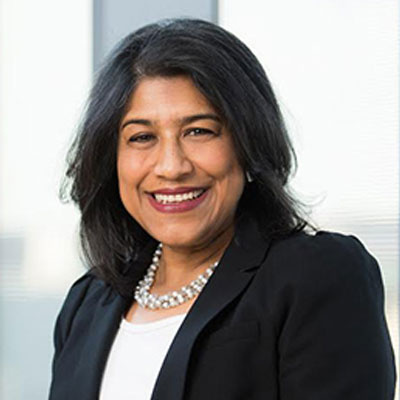
Sensory marketing is a relatively new and growing field of marketing that Professor Aradhna Krishna pioneered in the early 2000s. Krishna saw that there were disparate fields of study on senses, but there was no cohesion between these fields. She brought all these sub-fields together under the umbrella of sensory marketing and organized the first conference on it in 2008. She then wrote two books and dozens of scholarly articles on the subject to make the field grow. And the field did grow both in academia and in practice -- enough for Harvard Business Review to do a lead Ideawatch article on it featuring Krishna as the world's foremost expert on the topic. Krishna has defined "sensory marketing" as marketing that engages the consumers' senses and affects their perception, judgment, and behavior. Krishna continues to publish important, scholarly articles on the topic. She also started the Sensory Marketing Lab at Michigan Ross, which attracts PhD students and post-docs from around the world.

Professor C.K. Prahalad was the major pioneer and advocate of the 'bottom of the pyramid' proposition that selling to the poor can simultaneously be profitable and help eradicate poverty. While appealing, the BOP proposition is also controversial. Professor Aneel Karnani was an early and prominent critic of the BOP proposition. In his 2007 article "The Mirage of Marketing to the Bottom of the Pyramid" and his 2011 book Fighting Poverty Together: Rethinking Strategies for Business, Governments, and Civil Society to Reduce Poverty, he argues for an alternative perspective. Rather than viewing the poor primarily as consumers, it is better to focus on the poor as producers and to emphasize buying from the poor. Both the private sector and government have a critical role to play in alleviating poverty. The best way to alleviate poverty is to raise the real income of the poor by providing them appropriate employment opportunities. The private sector is the best engine of job creation. The government should facilitate the creation and growth of private enterprises in labor-intensive sectors of the economy. The government should also fulfill its traditional, accepted functions of providing adequate access to public services, such as education, public health, drinkable water, sanitation, security, and infrastructure.
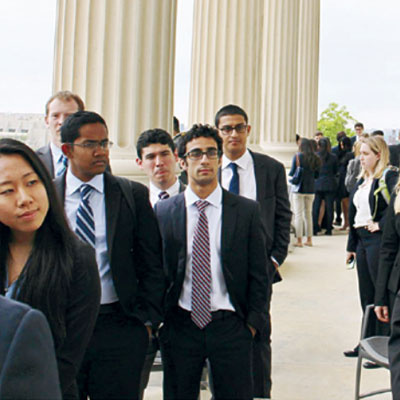
The Carson Scholars Program at Michigan Ross is a signature feature of the Ross BBA Program and a result of the vision and generosity of David Carson, BBA '55. Carson, the former president of People's Savings Bank in Connecticut, was recognized by Forbes as one of the 500 most powerful people in the corporate United States. Based on his experiences throughout his career, Carson realized that future business leaders should understand how government works to develop effective corporate strategies for participating in the public policy arena. As a result, CSP enables Ross undergraduates to augment their on-campus learning with study in Washington, D.C., where they meet with elected officials, government experts, industry leaders, issue advocates, and lobbyists. Since its foundation in 2005, the program has enabled more than 1,000 alumni to learn about the public policy process from these experts.
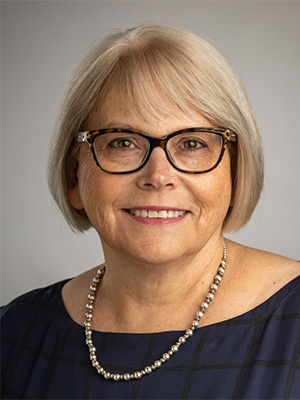
”Bifurcation of the Owner and Operator Analysis" was published by Professor Lynda Oswald in 1994. Her research was cited and quoted extensively by the U.S. Supreme Court in its unanimous decision in United States v. Bestfoods (1998) in clarifying parent corporations' direct and indirect liability for their subsidiaries’ actions in the context of CERCLA liability and hazardous waste cleanup. The liability of a parent corporation for the acts of the subsidiary is a complex issue that permeates all areas of corporate law and business relationships, and is not confined to the environmental context found in Bestfoods. Oswald’s research has since informed the decisions of over 55 additional courts -- federal trial and appellate courts as well as state appellate and supreme courts -- in business law contexts as varied as environmental liability, whistle-blowing under the Sarbanes-Oxley Act, the Racketeering-Influenced Corrupt Practices Act (RICO), employment discrimination, medical malpractice, negligence, bankruptcy, and real estate transactions.
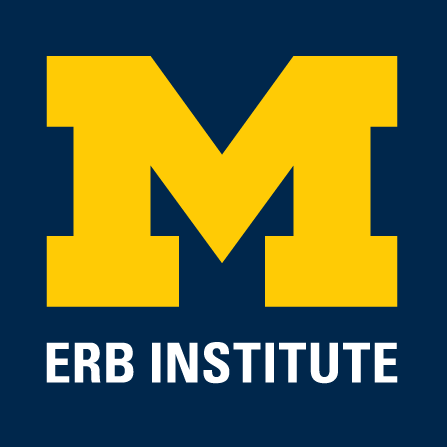
In 2018, Professor Tom Lyon led a team of scholars who published a groundbreaking article about corporate political responsibility titled “CSR Needs CPR” in the California Management Review. The article argued that corporate social responsibility was an insufficient measure of corporate contribution to society and that stakeholders who care about CSR should also pay attention to corporate political responsibility. In 2019, Elizabeth Doty, adjunct faculty at Presidio Graduate School, contacted the Erb Institute at the University of Michigan and suggested turning the article into an industry roundtable dedicated to working with a select group of influential business leaders and their companies to bring to life the core precept of the article – the need to better align companies’ political spending and lobbying with their commitments to values, purpose, sustainability, and stakeholders. Thus, the Erb Corporate Political Responsibility Taskforce was founded in 2020. Lyon and Doty have developed the taskforce into a nationally recognized forum with the goal of making CPR a new norm for business. The taskforce operates under Chatham House Rule and has 20 members from some of the most recognized brands in the United States who share best practices and address CPR challenges. In 2023, the taskforce released the non-partisan Erb Principles for Corporate Political Responsibility, with five major companies as inaugural signatories. Looking ahead, the taskforce will continue building its integrated framework and engage more companies in applying the Erb Principles. Lyon continues his work in this space with his recently published volume Corporate Political Responsibility.

The Personal Development Plan is a simple but impactful idea that has now been utilized by approximately 6,000 BBA alums and current students. At its core, the PDP is an Excel document that helps students plan the requirements to graduate, but its usage and value go far beyond just a requirement planning tool. In 2006, the BBA degree, which had for decades been a two-year degree program, was modified to a three-year structure with a small number of first-year preferred admits. Eight years later, in 2014, the BBA curriculum was modified from a 45 business credit requirement to 58 business credits. The changes to the curriculum meant that students had significantly more time, more flexibility, and more choices in how they progressed through the BBA degree. That flexibility increased even more as we moved to a four-year program in 2017. Advisors developed the PDP as a resource to help students make the most out of this expanded college experience.
In 2014, with the launch of the 58-credit BBA curriculum, a new core course was created, BA 200. As part of BA 200, PDP was introduced as a required component of the class and is now a co-curricular component of BA 100 and BA 102. Each year, the undergraduate advising team works with over 625 new BBA students (first-year students and transfers) so that each student develops an individualized plan for their life as a college student. Ensuring that they are planning requirements is an important part of this, but in developing their plan, students are asked to reflect on their goals for their time in college while developing their PDP. What skills and competencies do they hope to develop while they are here? Are there opportunities they want to take advantage of (study abroad, participation in programs through centers and institutes, minors or dual degrees, club leadership, etc.)? The PDP is a living document that travels with students throughout their four years and becomes a reference point for continued conversations and relationship-building with advisors until graduation. The PDP has had an impact on every single BBA student since the fall of 2014, helping to open their eyes to the rich opportunities at Michigan Ross and giving them a roadmap to their unique journey as a Ross BBA.
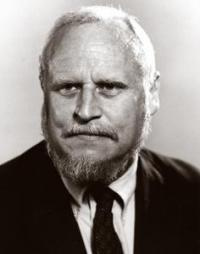
Michigan Ross has long been a pioneer in entrepreneurial education, introducing the nation's first course on entrepreneurship in 1927. However, in the early 1970s, Professor LaRue Hosmer played a pivotal role in championing entrepreneurship education at Ross. He developed and taught courses in small business management and a seminar on small business formation. He is considered the founder of the Michigan Entrepreneur Track and has also inspired present-day entrepreneurship faculty at Michigan Ross, including Professor Andy Lawlor. Lawlor was a student in Hosmer's entrepreneurial management course in 1973, and Hosmer has been an important mentor to Lawlor, helping to bridge the gap between business and teaching. Lawlor began guest lecturing under Hosmer's guidance in 1975 and assumed the teaching responsibilities for the entrepreneurship classes in 1981. Over the years, many successful companies have been born from Hosmer and Lawlor's teaching.
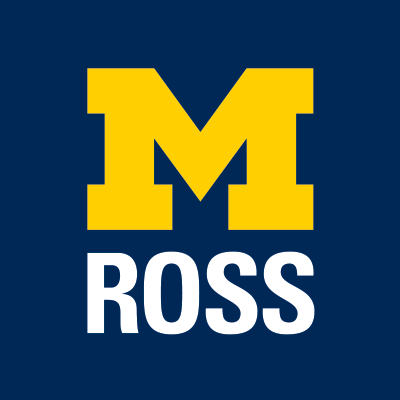
While concerns regarding corporate financial misreporting have persisted since the early 1900s, there were no rigorous methods that academics, market participants, and regulators could use to assess the accounting quality or the potential for financial misreporting when looking at a set of financial statements. Faculty members Patricia Dechow, Ilia Dichev, and several of their co-authors in the Michigan Accounting group developed several widely used models that allow users to assess the financial reporting quality of a set of financial statements and, more importantly, allow users to detect potential earnings management. These models and adaptations of these models continue to be used today, both in research and in accounting courses.

The marketing faculty at the University of Michigan has, over the decades, made several foundational contributions to the area of consumer behavior. Professor Joseph W. Newman, who was a marketing faculty member at the Michigan Business School from 1949-51 and again from 1965-73, helped greatly through his books and research publications to deepen the impact on the marketing discipline of concepts including economics and decision theory, psychology, sociology, and anthropology, especially through the qualitative research techniques of motivational research. Along with his doctoral students, he published highly impactful research on how consumers gather and use pre-purchase information. He also published research on customer satisfaction and dissatisfaction. For these and other contributions, he was named a fellow of the Association of Consumer Research in 1990, its highest honor. In the decades since, the marketing faculty at Michigan Ross has continued to make many more notable contributions to our understanding of consumer behavior.

Associate Professor Anant Nyshadham co-founded and co-directs the Good Business Lab, a labor research and innovation lab whose work to identify workplace tools and interventions to deliver both impact to workers and returns to employers has quickly expanded across four continents over the last decade. Designed and tested through rigorous randomized controlled trials in real-world workplaces, GBL has developed several tools for rapid and broad scale. GBL's worker voice tool, Inache, has been proven to improve worker retention, reduce absenteeism, and increase worker productivity in manufacturing settings. Similarly, the tool Pratibha is a tablet-based screening and training tool for frontline supervisors that measures and addresses soft skill deficiencies and has been proven to improve the retention of supervisors and dramatically and sustainably raise the productivity of workers in factories. The Bill and Melinda Gates Foundation recently awarded GBL a multi-million dollar grant to scale these tools to more than a million workers in the next two years.





